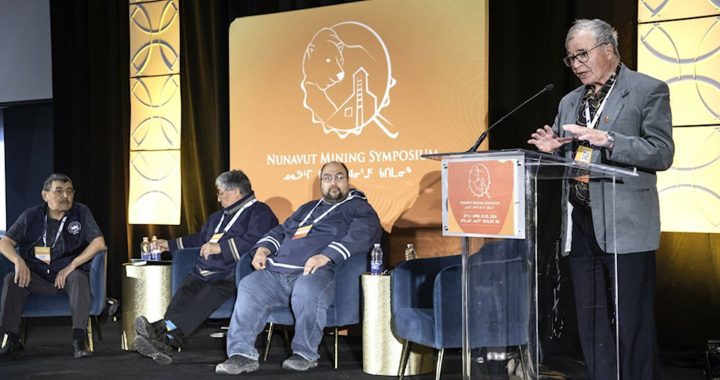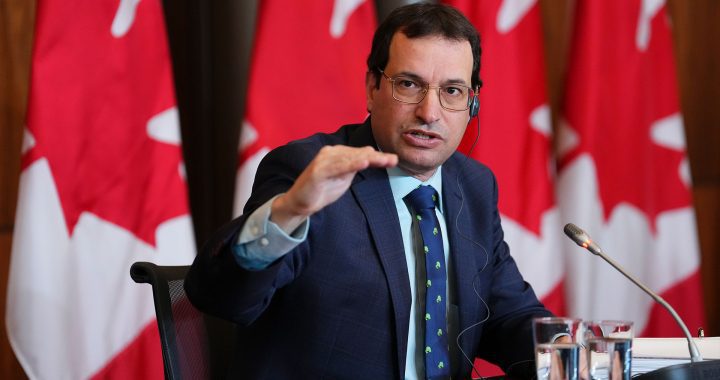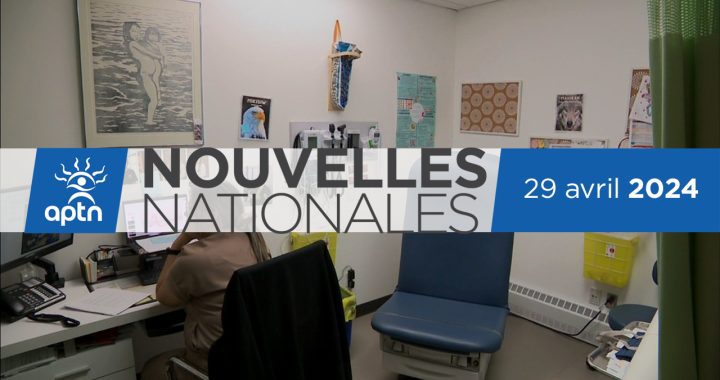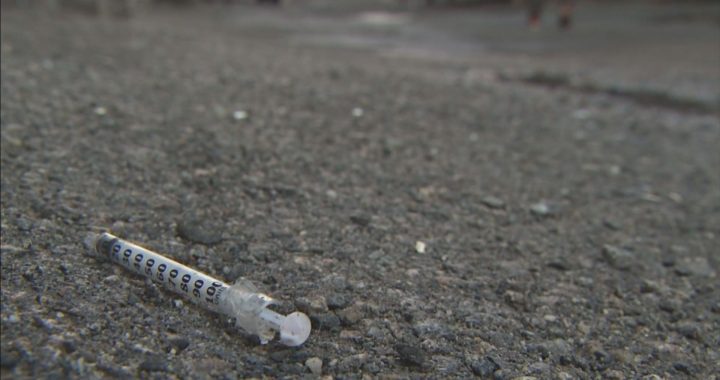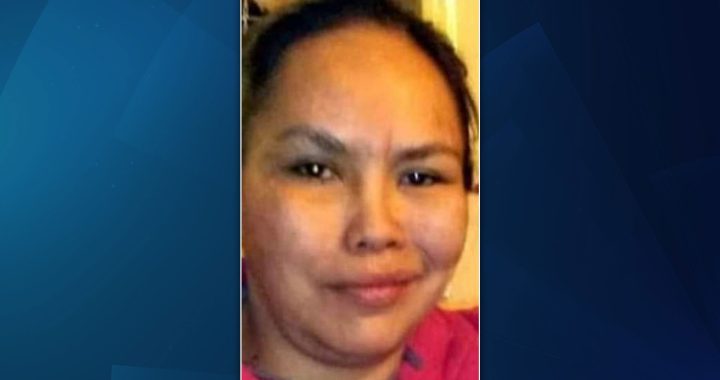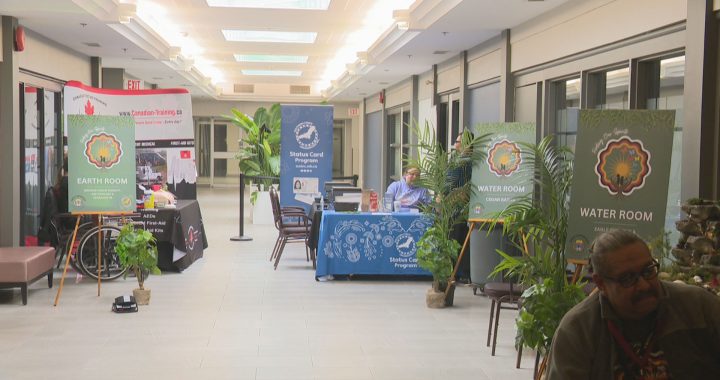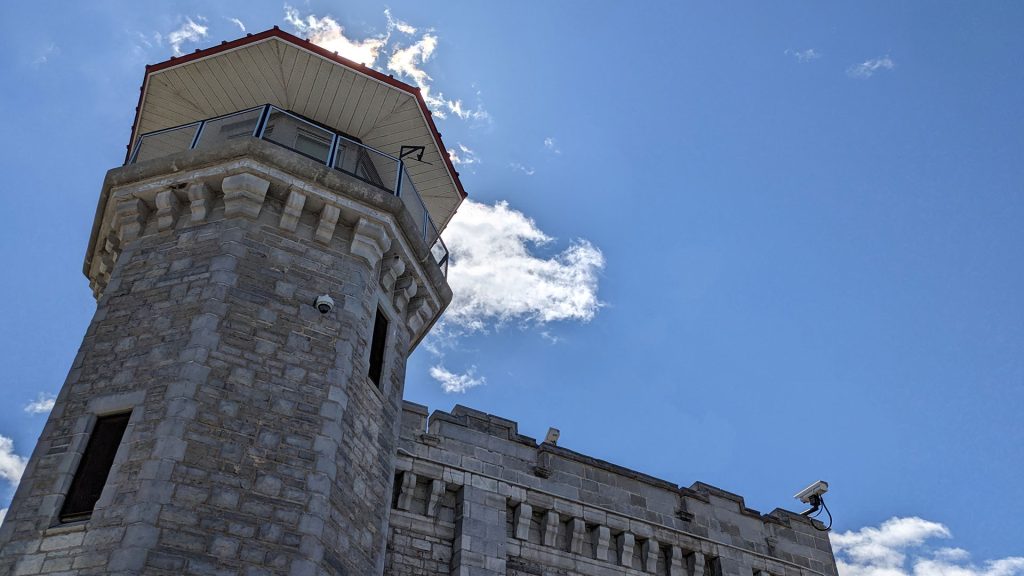
The family of Norman LaRue, a member of Tkʼemlúps te Secwépemc who is currently serving a life sentence in British Columbia, is speaking out about alleged discrimination from Correctional Service Canada (CSC) — but says the complaint process is too “manipulated” by the federal authority.
In December 2022, Jenni LaRue, who is from Simpcw First Nation, filed a complaint on behalf of her husband, an intergenerational survivor of the former Kamloops Indian Residential School (KIRS), and her family.
“It’s been nearly three years of constant fighting,” Jenni LaRue told IndigiNews.
If the commission finds there is a need to investigate further, it will refer the case to the Canadian Human Rights Tribunal for hearings or it could be settled at mediation.
“I was able to see, at least, that the (CSC) is afraid to go to the Human Rights Tribunal,” she said.
Jenni filed the complaint after an incident inside the Pacific Institution. It was 2021 and Norman’s nation had just announced that ground penetrating radar had detected 215 possible unmarked graves on the property of the residential school his father attended.
He told IndigiNews to cope, he painted a mural on a wall outside of his cell depicting a teddy bear with a heart on one side and a protector of the children on the other. He alleges in the human rights complaint that he was reprimanded by a guard.
The incident was the last straw for Norman’s wife Jenni LaRue, who said her husband has faced racism and harassment from prison guards as well as forced separation from his family and culture.
“She said to my husband that ‘I don’t believe that you’re from this place. I believe you’re just trying to run game on me,’” said Jenni, recounting her spouse’s experience.
“Basically, just putting him down while he’s in this state of shock and retraumatization.”
The letter to the commission alleges that CSC discriminated against Jenni LaRue and her family on the basis of sex and race.
“I have always been transparent and have always fought the false allegations against Norman and I brought about by CSC, this will be the first time that I am able to share my story, legally and provide my evidence.” part of her complaint said. “Correctional Service Canada never provided such an outlet.”
Canada’s prisons
Norman LaRue is one of about 4,000 Indigenous inmates in Canada’s prison system — an overrepresented demographic now making 32 per cent of the total population behind bars — who are being failed by Correctional Service Canada (CSC), according to the federal prison watchdog. Indigenous women make up 50 per cent of those locked in the country’s penitentiaries.
A recent report by Ivan Zinger from the Office of the Correctional Investigator, included interviews with Indigenous inmates across the country who — like Norman — say they have faced mistreatment from prison staff, disconnection from their culture and families and the perpetuation of cycles of harm in a deeply colonial system.
“Disappointingly, the (CSC) has retained the vestiges of a colonial institution — hoarding the authority, the resources, and the ability to dictate what gets done, how, and for whom,” says Zinger’s November 2023 report titled “Ten Years since Spirit Matters: A Roadmap for the Reform of Indigenous Corrections in Canada.”
“In so doing, the role and reach of Indigenous individuals and communities is so marginalized and insufficiently resourced that it is hard to ignore the conclusion that they have been set up to fail.”
‘They do anything they can to separate the family’
On March 14, Jenni met with officials from the CHRC for two mediation sessions and one conciliation on behalf of herself and her husband in an ongoing battle against CSC and alleged mistreatment at the Pacific and Kent institutions.
The meeting involved multiple complaints about the CSC. In particular, Jenni said after her family spoke out about systemic racism at Pacific, she has been routinely searched, has faced false allegations around drug use and being “dangerous,” and denied visits.
Jenni also wrote to the CHRC that the separation is particularly difficult for her as a ‘60s Scoop survivor and she now sees her children being separated from their family in the same way she was.
“While at Kent Institution, all communication between my family was stopped, this included phone calls, visits and more,” her complaint states, in part. “We were allowed only a five-minute call for Christmas last year, we had to fight for that.”
IndigiNews reached out to the CHRC, but was told they could not comment on the specific complaint because of confidentiality.
“Not every human rights complaint goes through our process in the same way. A complaint may go through one or several steps before it is resolved,” the CHRC’s statement added. “The order of the steps can vary because every case is unique. When possible, the Commission encourages people to try to solve their dispute informally and at the earliest opportunity. This is done through mediation, which is voluntary and confidential.”
Jenni said her family has faced systemic racism and is just one of many BIPOC families dealing with this issue at the hands of CSC.
“After that news and the reason why he was being targeted so much, Norman mentioned to me that he was pulled into a room and berated and yelled at by the correctional manager — a non-Indigenous Caucasian manager who worked at Pacific Institutions Pathways unit.”
Norman, who is also a singer of traditional and ceremony songs and led the drum group at Pacific to teach younger inmates, said he was prevented from practising once he started calling out the discrimination against his family.
“The constant harassment style when this happened — it was very hard because they cut off contact between my wife, my children, and I was not allowed to talk to my wife or my children for a period of somewhere between four to six months,” he said in a phone interview from the Mission Institution, where he is currently.
The family’s struggles with the CSC for various kinds of discrimination, harassment and violence have been ongoing for over three years and they say it has increased over this time. Jenni said she initially submitted a complaint to CSC and was told the matter would be investigated internally.
Norman has been in the prison system since being found guilty of first degree murder in 2013. He has since appealed his conviction and Jenni said he has been working with the UBC Innocence Project.
“The CSC and the way that they behave with Indigenous families, and especially how they portray themselves to the media, is as though they are very helpful, they are very open minded, they are engaged. They basically want the public to believe that they’re the knights in shining armour towards the Indigenous people and what they go through within the correctional system,” Norman said.
“I have to say, what they portray to the media and what they portray to the community is a farce. It is the biggest lie that I have ever seen.”
According to the two of them, CSC guards at Pacific responded to their complaints by doubling down on its discrimination.
“They moved my husband from an Indigenous Pathway unit to a maximum security unit,” Jenni said. “They separated us, they put a no contact order between us and they refused to investigate from the very beginning — they made serious decisions that endangered my husband’s life.”
This separation has been especially difficult for their five kids, who Jenni said have now been invited to make their own submissions to the CHRC.
“Our youngest is five years old and has spent most of her young life with CSC staff making decisions to separate the family over frivolous issues and false accusations,” Jenni said.
“They do anything they can to separate the family.”
‘I was in residential school and I feel like I’m going through that again’
In the Correctional Investigator’s report, anonymous interviews from Indigenous inmates illuminate similar issues.
“We feel that as First Nations inmates, the treatment we are receiving … is on a level of colonial residential school treatment,” said one inmate.
“We have been put down, we have been lied to. Our culture and spirituality has been taken away, yet again, by abuse. This is not fostering relationships.”
Another prisoner, a participant in the Pathways program, described feeling like there’s “nothing here” for Indigenous inmates.
The CSC’s Pathways program are penitentiary-based initiatives meant to “offer healing to Indigenous people.”
“I was in residential school and I feel like I’m going through that again. I’m being scolded and told what to do,” the inmate said.
“I’ve been dealing with anxiety since I was a child and coping through drugs and alcohol. … I don’t have the anxiety in the Sweat Lodge, but when the cell doors crash closed it makes me so anxious.”
According to the report, the most common complaint from Pathways participants and staff at all institutions pertained to the cultural insensitivity and disrespect of some correctional officers.
“During interviews, we learned that some operational staff — in particular, officers involuntarily assigned to Pathways units — show a lack of understanding and willingness to learn about Indigenous culture, history, and the trauma carried by Indigenous individuals,” Zinger’s report notes.
“Some operations staff also make disparaging or derogatory remarks about the Pathways Initiative demonstrating insensitive, discriminatory, and ill-informed views.”
Others described racism from staff, such as guards complaining about smudging and being reprimanded when they complain about their treatment.
“There’s racism with the guards. They just assume that we get everything, that we’re special. [GUARD] always calls me ‘chief’ and thinks that because I’m ‘Native’ that I’m getting everything, and I don’t deserve it,” one inmate recalled.
“They think we’re acting entitled. I would say that eight out of ten guards have this attitude.”
The report also found the Pathways program to be facing other challenges, with participants raising concerns about the lack of cultural activities and services, decrepit facilities, culture being “watered down,” conflicts with correctional programs and the availability of cultural foods. Others said that the Pathways program was “weaponized” by being offered as a perk or privilege rather than the basic right to participate in healing through culture.
“One older participant who was initially looking forward to engaging in a traditional healing path decided he had enough, ‘I asked my [Parole Officer] to move me out of Pathways because I’m not getting anything out of this,’” the report states, adding that this sentiment was shared at most of the sites the investigative team visited.
‘I’m a product of the federal government’
Like others involved with the prison system, Jenni and Norman are both survivors of the ‘60s Scoop and the foster care system.
“I’m a product of the federal government and I am what they made me,” Norman said.
“Before the CSC, it was foster homes, group homes, really bad experiences there — abuse, every single kind — physical, sexual, emotional, spiritual. A lot of systemic racism within that area through foster homes and everything — stuff that no child should ever be put through.”
Norman comes from a lineage of hereditary chiefs. His grandfather was chief Eli LaRue. But throughout his childhood, Norman had only sporadic visits with his family whilst living in foster care in P0rince George, B.C.
He also lost his mother to cancer when he was 13 years old, his father to a heroin overdose when he was 17 years old. At 19, his sister Danielle was declared missing and is now believed to have been murdered.
“Needless to say, both of our families have had similar traumas in them,” Norman said of his marriage to Jenni.
“It’s one of the things that we have in common and what’s helped us to be comfortable with one another.”
Jenni and Norman are determined to heal from the cycles of trauma that have permeated their families. Aside from meeting with the Human Rights Commission, they have also been working with the Innocence Project at the University of British Columbia and through the Simpcw First Nation’s social work department.
They have also shared their story with Kim Beaudin, the national vice-chief of the Congress of Aboriginal Peoples (CAP).
Beaudin was in attendance at the mediation and conciliation as an observer and said in his own experience, the CSC has refused to engage and respond to individual complaints made by the families of Indigenous folks who are incarcerated.
“[The CSC is] really good at policy but they really have a hard time with accountability,” Beaudin said in an interview.
“Basically, they pass the buck and blame whoever, blame it on policy or blame it on something else. And I noticed that they really protect themselves too — they don’t take personal responsibility and that’s how they roll.”
He said that a critical problem in Canada’s correctional services system is the guards working within it. For example, in the case of Curtis McKenzie who was from the Lac Laronge Indian Band and was found unresponsive in his cell at the Saskatchewan Penitentiary in 2020, Beaudin said McKenzie was given razor blades despite having a history of self harm.
“I’m trying to think where did I ever read that the guards are accountable for their behaviour and I can’t remember reading anywhere about that or even them coming up to a hearing and talking about their behaviour,” he said. “It just doesn’t happen.”
Beaudin said what he would like to see is greater accountability and oversight for what’s happening inside the prison system.
“When you go to prison and you know, your life is literally in danger. Once you go to any of these facilities, it doesn’t matter which one but your life is in danger,” he said. “You could end up coming out of there in a body bag. And you know, the old story or the adage is that in Canada, you’re sent to prison not as punishment but for punishment.”
Beaudin said ultimately, changes within the CSC must trickle down to how individual guards interact with incarcerated individuals.
“I always believe we could do much better but the way it’s the CSC up now … I don’t have a whole lot of faith.”
Read More:
Can Kathy Neil fix Canada’s prison system for Indigenous inmates? Some people aren’t so sure
For Jenni and Norman, the next steps involve taking their complaints to the Human Rights Tribunal, which Jenni said she sees as the only way of a “remedy coming.”
“I strongly believe that the human rights mediation process is too manipulated by CSC. I can share that they do disproportionately outnumber the victims at the meetings and have way more staff than necessary to protect them and appear aggressive to the victims,” she said.
“It often doesn’t end well for victims unless they go to court.”
CSC declined IndigiNews’ interview request earlier this year, stating that “current policies with regard to privacy prevent us from speaking to the specifics of a current or former offender’s case.”
CSC spokesperson Chris MacMillan did provide a statement which said the service has taken steps to address the over-representation of Indigenous Peoples in the criminal justice system.
This includes creating Indigenous Interventions Centres to provide streamlined support to Indigenous offenders and implementing reintegration initiatives that support Indigenous offenders as they transition to a life in the community, the statement said.
It also explained that Kathy Neil was brought on as a deputy commissioner for Indigenous corrections as of May 2023 — a role that was recommended by Ivan Zinger’s predecessor going back to 2001 and again in a number of reports from the correctional investigator, Auditor General of Canada and the National Inquiry into Missing and Murdered Indigenous Women and Girls. In 2022, former Justice minister Marco Mendicino wrote to CSC commissioner Anne Kelly and ordered her to create the position. The role includes “meeting with stakeholders and community experts across the country.”
“Throughout these conversations, she has heard firsthand the lived experiences and the challenges faced by Indigenous peoples who have been involved with the criminal justice system,” CSC’s statement said.
‘Confront the discomfort’
Recognizing the history and ongoing challenges faced by incarcerated individuals, especially those who are part of the Pathways initiative, Zinger made several recommendations to CSC. The CSC has since responded to each of those recommendations.
They include asking the CSC to make concerted efforts to improve its Indigenous initiatives by reviewing current Pathways participants to identify individuals for Healing Lodge placements. As well, establishing other alternatives and developing a larger and culturally responsive approach that includes initiatives for Indigenous people who do not benefit from the current Pathways model.
“Based on the voices of more than 200 people living and working within the federal correctional system, as well as perspectives from external Indigenous organizations and groups with whom we met along the way, it is clearer than ever that components of CSC’s Indigenous Continuum of Care … are not working as intended,” Zinger said in his concluding message in the report.
While systemic change within an institution can be difficult, Zinger added “the reality is that there has been a far greater discomfort borne by Indigenous peoples for generations.”
“Therefore, we not only recommend, we challenge corrections to confront this discomfort,” he said in his closing message.
“We challenge the Service, as we have built into our recommendations, to divest itself of many of the authorities, controls and resources it has retained for far too long and have yielded far too little in the way of progress for Indigenous peoples and communities,” he wrote.
“Instead, we ask the Service to invest in and trust the Indigenous peoples, communities, and organizations who stand a greater chance at creating meaningful and long-lasting changes for the better, for today, and the generations to come.”
For Jenni and Norman, these changes are long overdue, especially for their children. Jenni hopes that someday her family can be reunited “and afford the right to be together and heal from trauma.”





